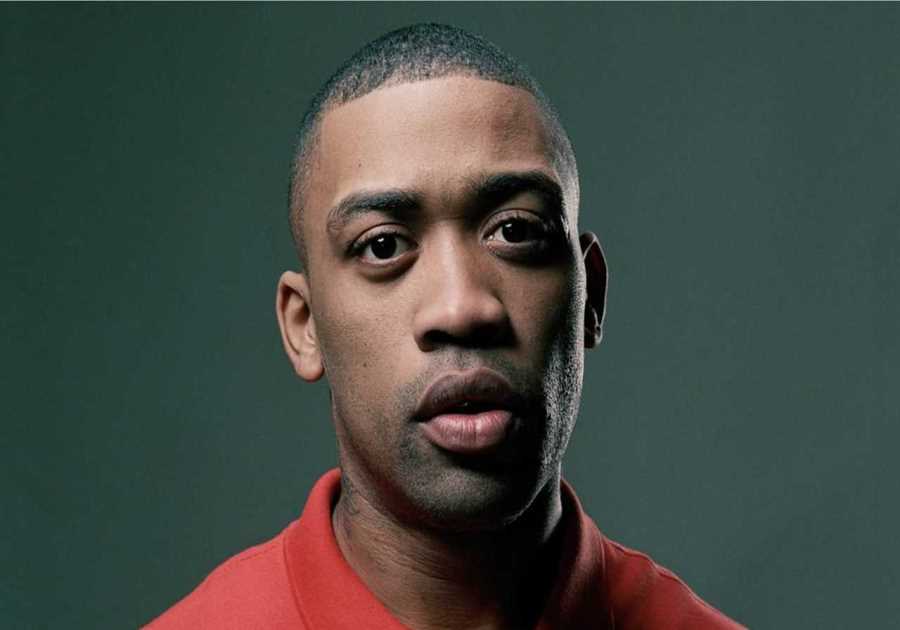Texas Southern women’s basketball coach Cynthia Cooper-Dyke’s list of accomplishments should have qualified her for any job in the basketball world. She’s won a championship in high school, two collegiately, four in the WNBA and two Olympic medals. Individually, she’s a four-time WNBA Finals MVP, two-time WNBA MVP, three-time All-Star and a four-time All-WNBA first-team selection.
Once her playing career ended in 2003 and she was pondering her next career steps, the only flaw on Cooper-Dyke’s résumé complicated her job search: She didn’t complete her bachelor’s degree. When it was time for Cooper-Dyke to find a college coaching opportunity, it was a historically Black college and university (HBCU) that gave her the shot and a path to finish her degree.
“You can say I should have been given the coaching job anyway because I’m a Hall of Famer or because I won four championships in a row, but there are rules and regulations,” Cooper-Dyke told Andscape. “Even if you’ve won championships, or you’ve played on the highest levels in the Olympics, you need to follow the rules [and] you have to go finish your degree. That’s why I encourage my players today to finish their degree … every single player I want to graduate.”
For Cooper-Dyke, the combination of academic struggles, the death of her brother and the time-sensitive nature of a pro career all were contributing factors to her not finishing her degree at USC. Cooper-Dyke dropped out of USC briefly after the 1984 season before returning to play her senior year in 1985-86. Afterward, she started her overseas career in Spain.
When she ended her playing career, the school willing to take a chance on Cooper-Dyke was Prairie View A&M, an HBCU 50 miles north in Houston, where she spent her WNBA career with the Houston Comets. Then-Prairie View athletic director and current commissioner of the Southwestern Athletic Conference (SWAC) Charles McClelland said his hiring of Cooper-Dyke in 2005 followed the tradition of HBCUs.
“That’s the history of HBCUs, taking chances on individuals that have not necessarily been given the opportunity. That’s the mission of our schools: We historically served the underserved. It’s in our DNA, our creed, and it’s who we are,” McClelland said. “I think that we are very good at identifying talent, nurturing that talent and having that talent to excel. We do that from students to student-athletes to coaches.
“When we hired her, she did not have a bachelor’s degree and that was one of the requirements that I laid out. ‘I’m gonna take a chance on you, I’m gonna take the heat for hiring you, but you have to promise me that you’re going to finish your degree.’ It was a nonnegotiable, not necessarily for her to coach, but I understood her potential and for her to grow, she needed that degree. So we worked together.”
McClelland gave Cooper-Dyke two years. The 23-year gap between her freshman year at USC in 1982 and her first year at Prairie View A&M in 2005 was an adjustment.
“I’m so old that when I was in school there were certain classes that weren’t mandatory [or] they weren’t in the general education area,” Cooper-Dyke said with a laugh. “When I went back to school, I actually had to go back and take other classes like computer and speech.”
Her educational experiences between the two universities also differed. While at USC, basketball and maintaining her grades were Cooper-Dyke’s primary focuses with little time left for extracurriculars. At Prairie View, she was introduced to Black Greek-letter organizations and their culture, something she had never experienced growing up in the Watts neighborhood of Los Angeles.
“I was pretty much isolated, in a sense that I took [basketball] very seriously. I came from the inner city. So I already had an issue academically [and] I had to study harder [and] catch up. So I really have very little time for extracurricular activities other than basketball and academics,” Cooper-Dyke said of her experience at USC. “Also, [HBCU culture] wasn’t something that I grew up around. I didn’t grow up around fraternities and sororities, so I didn’t really have a history there. I learned so much by being at a historically Black university.”
At the start of her coaching career with Prairie View, Cooper-Dyke managed schoolwork and coaching. She received academic credit after sending in videos of speeches she had given over the course of her career. She graduated in 2005.
In her second season, she led Prairie View to its first SWAC title and an automatic NCAA tournament bid. In her five-year tenure from 2005 to 2010, the Lady Panthers would go on to win two SWAC tournament titles, three SWAC regular-season championships and two postseason bids to the Women’s National Invitation Tournament. In 2007, Cooper-Dyke was named the SWAC Coach of the Year, the first of three coach of the year honors from three different conferences.
When analyzing the current HBCU coaching ranks and seeing the increase in former professional athletes, including Jackson State’s Deion Sanders and Tennessee State’s Eddie George in football, and Fisk’s Kenny Anderson in men’s basketball, McClelland is quick to say Prairie View was the first to do it.
“Now when you look at all of the professional athletes that are entering into the space, we were the first to do it with Cynthia and that was back in the early 2000s,” McClelland said. “Cynthia’s name still was ringing as the best female athlete, regardless of what sport that was out there. So to bring her in, from my perspective, it was a no-brainer. There was nobody that I have ever talked to, man, woman or child, who knew more basketball than Cynthia Cooper.
“When you look at where Prairie View has come from, fast-forward now to all of the facilities that they have, all of the championships that they won quite frankly, it started with the hiring of Cynthia Cooper. She was definitely the catalyst to bring the recognition and the notoriety and ultimately the resources to Prairie View for it to be enjoying the basketball and overall athletic success that it enjoys today.”
Cooper-Dyke is now in her second stint as head coach of Texas Southern after coaching the Tigers for one season in 2012-13 before leaving for USC. She has also coached UNC Wilmington and the WNBA’s Phoenix Mercury. With nearly 20 years of head-coaching experience, Cooper-Dyke says she’s softened her approach to adapt to the needs of the new generation of students she’s coaching, but one thing she hasn’t let up on is her student-athletes graduating.
“Not getting my degree initially helped me really focus these kids on getting their degree immediately so that they don’t have to come back to school. If they’re coming back to school, they should be coming back for their master’s,” Cooper-Dyke said. “Education is No. 1, even if you have already graduated, and you’re working on your master’s. Let’s get it done. Let’s get it done while we’re paying for it [and] let’s get it done in a timely fashion. And getting good grades in that class, not just skating by.”
After coaching at two HBCUs, Cooper-Dyke loves the culture. She happily recalls the first time she saw a probate from a Greek-letter organization and how she excitedly recorded the entire step show on her phone. When Texas Southern nearly upset Jackson State this season, she likened her team’s effort to how the Comets beat a far more talented Los Angeles Sparks team spearheaded by Lisa Leslie and how SWAC competition has improved over the years.
“When you look at the heart, passion and the hard work that players put into the sport, it balances the tables. I think we’re doing a fantastic job right now of playing both sides of the ball. So we’re a little closer to figuring out who we are as a team offensively and defensively. I think now we’re playing with a lot more confidence and winning does that,” Cooper-Dyke said of her team this season.
“The talent pool is bigger, the talent level is higher, and therefore every game [in the SWAC] is a competitive game. So you’ve got to bring it every single game. I like the fact that we’re more competitive so that when we go out and play other teams outside of the SWAC, that those games become more competitive as well.”
She also etched her name into HBCU history and was a 2021 inductee into the SWAC Hall of Fame, which includes legends Walter Payton, Eddie G. Robinson and Steve McNair.
Cooper-Dyke has found a passion for coaching at an HBCU and is proud of the experiences she’s had along the way.
“I thought it was a great opportunity to really give back and give to a historically Black university with hopefully some great coaching and the passion I have for women’s basketball. It turned out that the HBCUs gave me more than I think I gave,” Cooper-Dyke said. “I was all prepared to give and the HBCU experience gave me so much more. It’s just so much bigger than the university, it’s when you are coaching people who look like you, you’re around students and faculty and you feel at home almost immediately.
“The fact that I’ve been at UNC Wilmington, Prairie View, USC and now I’m at Texas Southern, there aren’t a lot of differences between some of the BCS-level schools and the SWAC schools,” she continued. “It’s just some discipline, some commitment and some drive, and you get those things together and you could compete with anyone. I love being at an HBCU.”
-----------------------
By: Mia Berry
Title: How an HBCU created a college coaching path for Cynthia Cooper-Dyke The Texas Southern women’s basketball coach uses her life experiences as a constant lesson for her players
Sourced From: andscape.com/features/how-an-hbcu-created-a-college-coaching-path-for-cynthia-cooper-dyke/
Published Date: Thu, 10 Mar 2022 17:32:58 +0000






